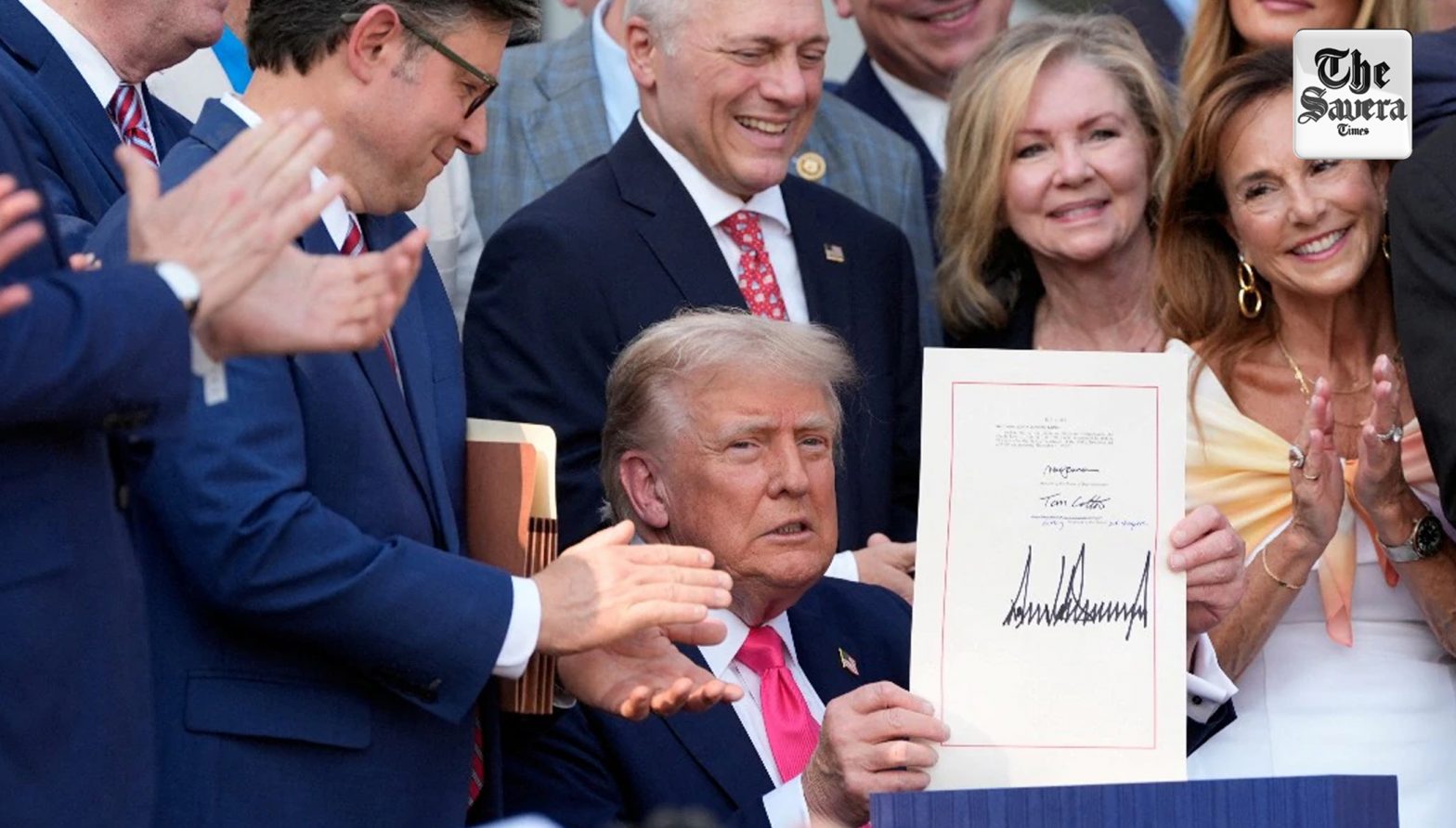
Washington: President Donald Trump formally signed his much-talked-about legislation, known as the “One Big Beautiful Bill Act,” following Republican passage in Congress this week. The virtually 900-page bill combines a variety of tax cuts, spending cuts, and policy priorities that demonstrate Republican agendas, such as funding for national security and immigration enforcement.
Important Tax Perks
The law brings in some $4.5 trillion worth of tax reductions, which Republicans say are necessary since most of the tax deductions from Trump‘s first year are scheduled to expire after December. This law substantively makes the current tax rates under Trump‘s first year permanent. Among its provisions, the bill boosts the child tax credit from $2,000 to $2,200, as per the administration’s pro-life policy. It also contains a new deduction for seniors who make up to $75,000 a year, designed to get rid of taxes on Social Security benefits. Further, the bill contains several tax reductions for companies, aimed at spurring economic growth.
Defense and Immigration Enforcement Funding
The bill spends around $350 billion on national security, including money to expand immigration detention facilities with 100,000 additional migrant detention beds—funding Trump‘s vow to construct the biggest deportation center in the country. It also gives money to bring on more Immigration and Customs Enforcement (ICE) agents. Immigrants asking for asylum and protection will pay new charges in order to fund these efforts. In addition, billions of dollars are alloted for Pentagon operations, such as ammo stocks and upgrades for defense troops, as well as $25 billion for the development of the Golden Dome missile defense system.
Medicaid and Social Assistance Cuts
To make up for the lost revenue from the tax relief and added expenditures, the bill envisions considerable cuts to Medicaid and low-income food assistance programs. Republicans justify these reductions by arguing that safety-net programs must only fulfill their intended purpose, and not become conduits for waste and abuse. The bill also adds a proposed $35 co-payment for users of Medicaid. Under the Congressional Budget Office‘s projections, if passed, about 11.8 million Americans would lose their health insurance by 2034 because of these reductions.
Reduction in Clean Energy Incentives
The legislation seeks to repeal the tax credits created by President Biden to encourage clean energy and fight climate change. Significantly, tax credits for the purchase of new and used electric vehicles expire on September 30 of this year—far sooner than the existing law‘s expiration date at the end of 2032. These cuts are included in the push to reduce government subsidies for renewable energy projects.
Impact on Federal Deficits
Overall, the Congressional Budget Office projects that this legislation will increase the federal deficit by nearly $3.3 trillion over the next decade, from 2025 to 2034. This move marks a significant shift in fiscal policy and has sparked debate over its long-term economic implications.
